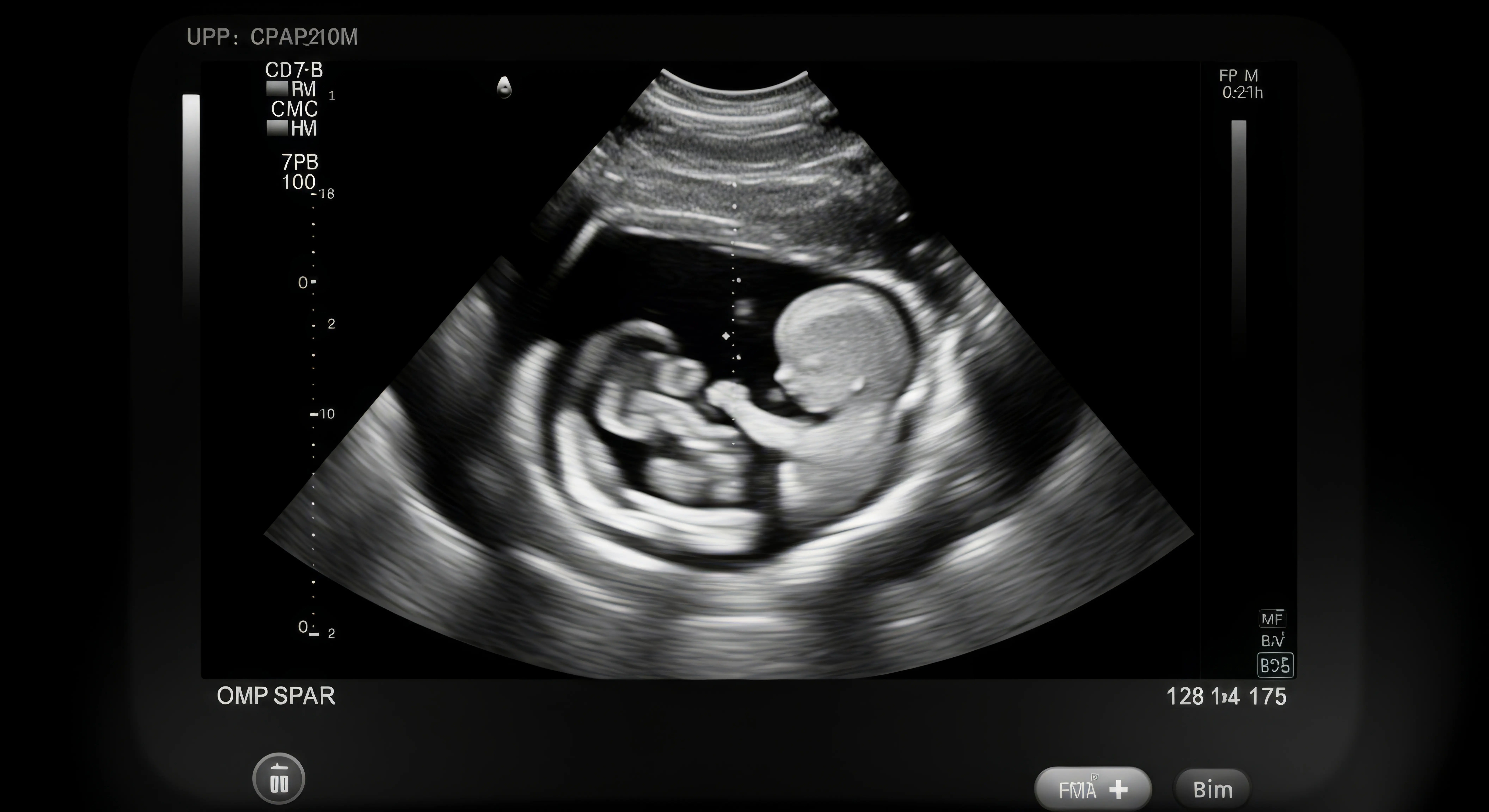Meditation During Pregnancy: Your Guide to a Calmer, Smoother Journey
Know about meditation during pregnancy, why it is important, benefits of meditation, meditation during labour, delivery and trimesters and more.

Written by Dr. Siri Nallapu
Reviewed by Dr. D Bhanu Prakash MBBS, AFIH, Advanced certificate in critical care medicine, Fellowship in critical care medicine
Last updated on 13th Jan, 2026

Introduction
Pregnancy is a beautiful, transformative journey, but it can also be accompanied by anxiety, physical discomfort, and sleepless nights. What if there was a simple, drug-free tool to help you navigate these challenges and connect more deeply with your growing baby? Enter meditation. This ancient practice is gaining modern scientific backing as a powerful way to promote a smoother, healthier, and more joyful pregnancy. By training your mind to find calm amidst the chaos, you can significantly reduce stress, manage pain, and create a serene environment for your little one to thrive.
Why Meditation is a Powerful Tool for a Smoother Pregnancy
Know the reasons below:
The Science of Stress and Pregnancy
Pregnancy naturally triggers a physiological stress response. Hormonal fluctuations, physical changes, and the anxieties of impending motherhood can lead to elevated levels of the stress hormone cortisol. While some stress is normal, chronic high cortisol levels have been linked to potential complications such as preterm birth and low birth weight. Your body’s state directly influences the womb environment.
Consult Top General Physician for Personalised Advice
How Meditation Directly Counters Pregnancy Challenges
Meditation acts as a natural antidote to this stress response. Studies using fMRI scans show that regular meditation practice can change the brain's structure, strengthening areas responsible for emotional regulation and weakening the neural pathways of fear and anxiety. It activates the parasympathetic nervous system—the "rest and digest" mode—which lowers heart rate, reduces blood pressure, and decreases cortisol production. This creates a direct, positive impact on both your well-being and your baby’s development.
Top Benefits of a Regular Meditation Practice for Mom and Baby
For the Mother: Emotional and Physical Well-being
Reducing Anxiety and Pregnancy Depression
Research published in journals like Obstetrics & Gynaecology has shown that mindfulness meditation can significantly reduce symptoms of anxiety and depression in pregnant women. By observing your thoughts without judgment, you learn to detach from cyclical worries about childbirth and parenting, fostering a more positive mental state.
Improving Sleep Quality and Fighting Insomnia
The physical discomfort and racing thoughts of pregnancy can wreak havoc on sleep. Meditation, particularly body scans and guided sleep meditations, quiets the mind and relaxes the body, making it easier to fall asleep and stay asleep. This is crucial for your energy levels and overall health.
Managing Pregnancy-Related Pain and Discomfort
Mindfulness teaches a unique approach to pain: observing the sensation without the layer of emotional suffering that typically amplifies it. This doesn't make the pain disappear, but it can change your relationship with it, making backaches, round ligament pain, and other common discomforts more manageable.
For the Baby: Promoting Healthy Development
The Link Between Maternal Cortisol and Fetal Development
By lowering your stress levels, you directly benefit your baby. A calmer physiological state means less cortisol crosses the placental barrier. This is associated with healthier fetal neurological development and a potentially calmer temperament for the baby after birth. You are quite literally meditating for two.
Getting Started: Simple Meditation Techniques for Beginners
Finding Your Comfort Zone: Posture and Environment
You don’t need to sit cross-legged. Find a comfortable seated position on a chair with pillows for support, or even lie on your side. The key is to keep your spine straight but not rigid. Choose a quiet, comfortable space where you won’t be interrupted for 5-10 minutes.
Focused Breathing (Pranayama): The Foundation
This is the simplest place to start. Close your eyes and bring your attention to your breath. Don’t try to change it; just notice the sensation of the air entering and leaving your nostrils, or the rise and fall of your chest or belly. When your mind wanders (which it will!), gently guide it back to your breath without criticism. Start with just 5 minutes a day.
Body Scan Meditation: Connecting with Your Changing Body
This is exceptionally powerful during pregnancy. Slowly bring your awareness to each part of your body, from your toes to the crown of your head. Notice any sensations—tingling, warmth, tension, or the weight of your baby. Acknowledge them and release any tension you find. This practice builds a loving, aware connection with your evolving body.
Guided Meditation and Mindfulness Apps
If silent meditation feels daunting, use guided sessions. Excellent apps like Calm and Expectful offer libraries of meditations specifically designed for each trimester, fear around childbirth, and bonding with your baby.
Tailoring Your Practice: Meditation by Trimester
First Trimester: Managing Fatigue and Nausea
Energy is often low. Focus on short, restorative practices. Try a 5-minute breathing meditation while propped up in bed or a gentle body scan to acknowledge nausea without fighting it, which can sometimes reduce its intensity.
Second Trimester: Energy and Body Awareness
With energy returning, this is a great time to establish a routine. Explore longer sessions and begin incorporating affirmations about your body’s strength and your baby’s health. Body scan meditations are perfect for connecting with your baby’s first movements.
Third Trimester: Preparation for Labor and Delivery
Focus your practice on preparation for birth. Use guided meditations that visualize a smooth labor, practice rhythmic breathing techniques for managing contractions, and cultivate a mindset of surrender and strength. If you experience intense anxiety about delivery, discussing your birth plan and concerns with your obstetrician is crucial. You can consult a specialist online with Apollo24|7 for additional peace of mind.
Using Meditation for Labor and Delivery
It includes:
Building a Pain Management Toolkit
Meditation equips you with tools for the delivery room. The focused breathing you’ve practiced becomes an anchor during contractions. The mindfulness skills allow you to take each moment as it comes, riding the wave of each contraction without being overwhelmed by fear of the next. Many childbirth methods, like Hypnobirthing, are built upon these very principles
Important Safety Tips and Precautions
Meditation is generally very safe during pregnancy. However, listen to your body. If a seated position is uncomfortable, lie on your side. Avoid holding your breath for extended periods. The goal is relaxation, not strain. Most importantly, meditation is a supplement to, not a replacement for, medical care. Always attend your prenatal appointments and discuss any severe physical or mental health symptoms with your doctor.
Conclusion
Embarking on a meditation practice during pregnancy is one of the greatest gifts you can give yourself and your child. It’s not about achieving a state of perpetual bliss, but about building resilience, finding moments of profound peace amidst the discomfort, and fostering a deep, mindful connection to the miracle happening within you. This smoother pregnancy journey is built one breath at a time. By dedicating a few minutes each day to quieting your mind, you invest in your mental and physical health, paving the way for a more positive pregnancy experience and a confident transition into motherhood. Start small, be kind to yourself, and embrace the calm.
Consult Top General Physician for Personalised Advice
Consult Top General Physician for Personalised Advice

Dr. Chethan T L
General Physician/ Internal Medicine Specialist
5 Years • MBBS, MD, DNB (General Medicine)
Bengaluru
Apollo Medical Center, Marathahalli, Bengaluru

Dr. Rajib Ghose
General Physician/ Internal Medicine Specialist
25 Years • MBBS
East Midnapore
VIVEKANANDA SEBA SADAN, East Midnapore

Dr. Rohit Basu
General Practitioner
8 Years • MBBS, DNB (General surgery)
East Midnapore
VIVEKANANDA SEBA SADAN, East Midnapore

Dr. Divyashree K
General Physician/ Internal Medicine Specialist
5 Years • MBBS
Bengaluru
Apollo Clinic, JP nagar, Bengaluru

Dr. Smitha Nagaraj
General Physician/ Internal Medicine Specialist
15 Years • MBBS, Diploma in Family Medicine
Bengaluru
Apollo Medical Center, Marathahalli, Bengaluru
More articles from pregnancy
Frequently Asked Questions
1. When is the best time to start meditating during pregnancy?
You can start at any time! Whether you’re in your first trimester or your third, you can begin to reap the benefits of reduced stress and improved mindfulness immediately.
2. How long should I meditate each day?
Quality over quantity. Even 5-10 minutes of consistent daily practice is more beneficial than an hour once a week. Gradually increase the time as you feel comfortable.
3. I can't stop my thoughts during meditation. Am I doing it wrong?
Not at all! The goal of mindfulness is not to empty your mind but to notice your thoughts without getting caught up in them. The simple act of noticing a thought and gently returning to your breath is the practice. You are doing it correctly.
4. Are there any types of meditation I should avoid while pregnant?
Avoid practices that involve extreme breath retention or intense heated environments. Always prioritize comfort. If a technique causes any physical strain, stop and try a different position or method.
5. Can meditation really help with labor pain?
Yes, but it’s best viewed as a pain management tool, not an elimination tool. Meditation and mindful breathing help you change your perception of pain, manage anxiety, and prevent tension, which can significantly reduce the overall experience of pain during labor.




